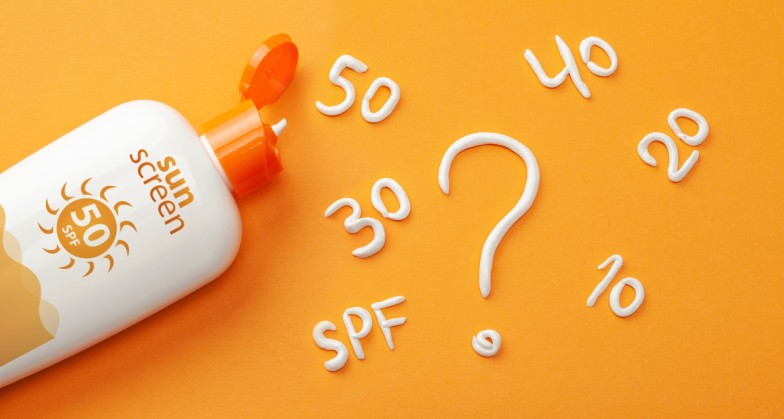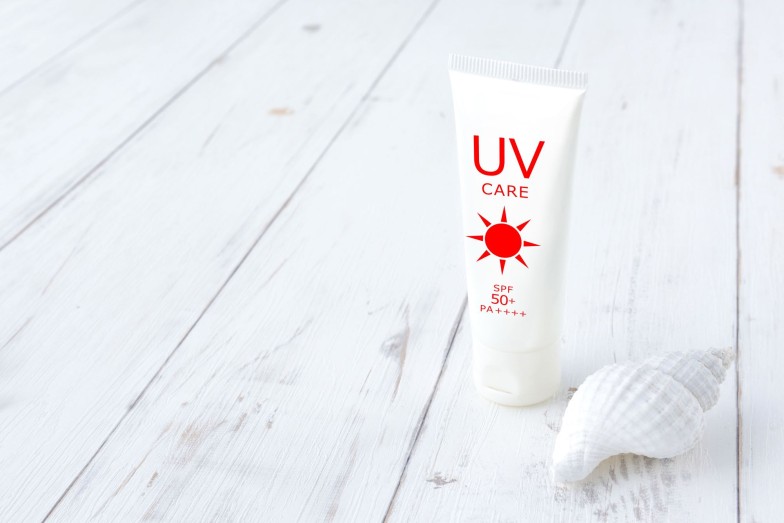
All your SPF questions: answered
6 million people in the United States are diagnosed with some type of skin cancer every year, according to the American Cancer Society.
From Melanoma, Basal Cell Carcinoma, and Squamous Cell Carcinoma, the three most common of skin cancers.
Of the 3, Melanoma is the fastest-growing skin cancer, and it can be fatal without early detection.
Since we can't avoid the sun, there are things you need to know to protect yourself from the harmful rays that are emitted by the sun. Use SPF sunscreen 365 days of the year, regardless if it's a bright and sunny day or cloudy and raining.

What is SPF?
SPF stands for Sun Protection Factor, and it measures the amount of protection you'll get from the sun's UVB rays, not UVA rays. UVB rays are shorter and are the ones that cause your skin to burn while UVA rays penetrate beneath the skin's surface for long-term damage. Both contribute to the risk of developing skin cancer.
To get protection from both UVA and UVB rays, you need to use a sunscreen with an SPF of 30, and it should say broad-spectrum on the label.
Just because you apply sunscreen the morning doesn't mean that you're safe throughout the rest of the day. Sunscreen needs to be applied every 90 minutes to 2 hours. Keep some on you at all times if you're going to be out and about all day.

SPF with a PA Factor
If you can get your hands on sunscreen that has SPF and a PA factor, which measures the UVA protection ranging from "+" to "++++" you're better off. You can find these products from Japanese and Korean brands that have better sunscreen than products in the States.
The sunscreen you choose will be personal as they come in various formulations from stick, cream, gel, and aerosol, from physical to chemical, and it all depends on your skin type. Make sure your chosen sunscreen has at least one of these ingredients:
-
Avobenzone
-
Zinc Oxide
-
Titanium Dioxide
There's a common misconception that if you have a deeper skin tone, you don't need to use sunscreen. If your skin tone is deeper, you won't burn, but you're still susceptible to aging, wrinkled skin, which is caused by the sun, so no matter your skin tone, always wear sunscreen.
The sun is strongest between 12 pm and 4 pm, make sure you're wearing sunscreen, a hat, and clothing that can shield you from the sun during this time of day. If you can't avoid being outdoors, try to stay in the shade as much as possible.
You should apply sunscreen 30 minutes before stepping outside because it takes at least 20 minutes for it to start taking effect. If you're going to be swimming or sweating, make sure you get a water-resistant sunscreen and make sure to apply it to your ears, eyelids, and lips, which we tend to forget to do.
The more you're out in the sun without sunscreen protection; you expose your skin to further damage from the sun, which weakens the skin and can cause it to bruise easily.
The top sunscreens per Consumer Reports are:
-
La Roche Posay Anthelios 60 Melt-in Sunscreen Milk
-
Equate Sport Lotion SPF 50
-
Banana Boat Continuous SPF+ Spray
The top Korean sunscreens with SPF and a PA factor are:
-
Missha All Around Safe Block Essence 50+ PA +++
-
Like I'm 5 Mild Sunscreen SPF 50 PA ++++
The best sunscreen is the one you use. Make sure to carefully read the label to make sure the sunscreen you choose is right for you.






